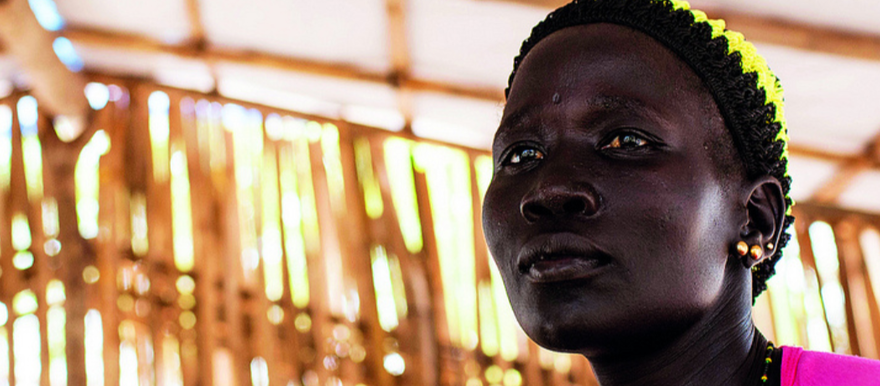At the outset of the conflict in South Sudan in December last year, Rebecca Nyakuo, age 35, was living in Rumbek working as a tea-seller.
Though Rumbek never saw clashes in the same way that other towns like Juba and Bentiu did, she nonetheless felt insecure in the city because she was originally a Nuer from Mayendit in Unity State.
Rebecca sought shelter at the UNMISS base. She says many friends from the Rumbek community were concerned for her safety and comforted her during a difficult time, which helped her to eventually return to her normal life and work.
Rebecca Nyakuo: ‘My colleagues helped me when we were struggling’
My husband is a police officer and has been one all his life. He was stationed at Roofchuol-Akol, not far from Rumbek, where I lived. I was visiting him when the fighting broke out on 16th December.
We have two children and needed to keep them safe. The only option was to the UNMISS compound.
I had been working at the tea kiosk at the airport and had missed a couple of days of work. My phone was not working and no one at work could contact me. My colleagues at work did not know that I was at the UN compound.
They asked around for me, questioned people in the town to find out where I had gone. They said they had been worried about me, given what was happening in different parts of the country, and given the fact that my family is Nuer.
They finally got word that I was at the UNMISS compound and came to visit me frequently. When my phone started working, they called me on a regular basis to find out how I was coping and how the family was.
When we were really struggling, they offered some money to me, without expectation of getting it back. Even though they were Dinka, they went out their way to make sure we were alright.
As we speak now, today is my first day back at work. When I was in the camp, my employer said that I should take as much time as I need, do what I have to do to keep my family safe, and then I can come back to work.
I am evidently a Nuer but no one has said or done anything to make me feel like I am under threat. This is in part due to the extra mile my colleagues went to comfort me and make sure I was alive and well.
This text is part of a collection of personal testimonies published by the organization Oxfam, and is reproduced here as part of a series of survivor accounts to be published by Radio Tamazuj. If you or someone you know has a story to tell, please contact us.
Photo Credit: Mackenzie Knowles-Coursin/Oxfam
Related:
Stories of hope and survival: Kang John Bol
Stories of hope and survival: Akol Kuol
Stories of hope and survival: Nyabil Riel
Stories of hope and survival: Makuey Chol Bol




